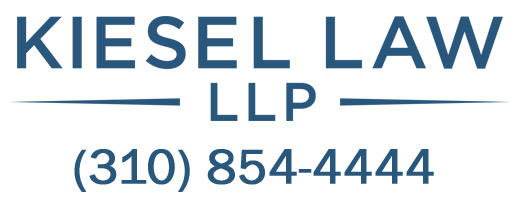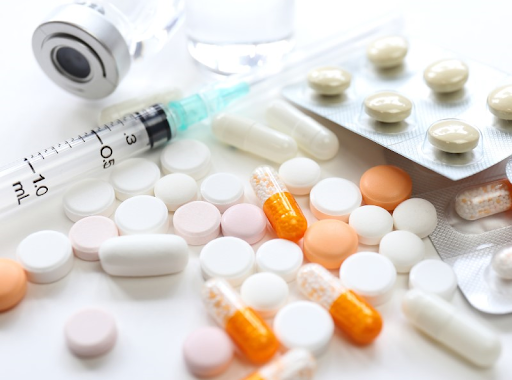Defective Drugs: What Are The Most Common Types of Drug Product Defects?
There is no arguing that medical advancements and the widespread availability of prescription drugs have made life significantly better for individuals facing potentially life-threatening medical conditions. Of course, since our health and well-being depend upon these medications, the safety and quality of such drug products is a top concern.
Pharmaceutical companies are responsible for developing medications that enhance lives, alleviate suffering, and contribute to overall well-being. Behind every pill, capsule, or injection lies rigorous research, testing, and adherence to strict regulatory standards. The journey starts in laboratories and extends through clinical trials, regulatory approvals, and post-market surveillance. The goal? To create and deliver effective treatments to patients in need.
While these much-needed drugs do much to improve our daily lives, the truth is that even with the utmost care and diligence, complexities can arise, leading to defective drugs and, ultimately, product liability lawsuits.
As a leading consumer litigation firm, we believe it’s important for you to know your rights should you suffer damages from defective drugs. In this article, we will touch on the most common types of drug product defects so you, as a consumer, can be well-informed of the potential risks of defective medication and what to do if you are taking drugs recalled by the FDA.
What Are Drug Product Defects?
In the simplest terms, a product defect refers to something that hinders the useability of a product in relation to its intended purpose. In other words, the product does not work the way it should. When referring to pharmaceuticals, a defective drug product is a medication (either prescription or OTC) whose side effects/risks outweigh the benefits.
Drug product defects also encapsulate a range of imperfections or deficiencies in medications that can compromise their safety, efficacy, or intended use. These defects can arise at various stages of the drug’s lifecycle, from development and manufacturing to distribution and administration. These defects hold significant implications for public health and consumer safety, potentially jeopardizing lives.
How Do Drug Defects Occur?
Drug defects can arise from various points during drug development, manufacturing, and distribution. Mistakes in formulation, manufacturing processes, or quality control can lead to defects. For instance, errors during ingredient mixing, incorrect dosages, contamination, or improper sterilization can all result in defective products. Design flaws in drug delivery mechanisms or inadequate warnings can also contribute to defective drugs.
What Problems Arise from Drug Defects?
The consequences of drug defects can be severe and far-reaching. Patients who rely on medications for health improvement might experience adverse effects, treatment failures, or worsened conditions due to defects. These issues can lead to additional medical complications, extended hospital stays, increased healthcare costs, and emotional distress for patients and their families. Additionally, defects can erode trust in pharmaceutical companies and the healthcare system, leading to patients avoiding treatment altogether for their health issues.
What Kind of Drugs Can Have Defects?
No class of drugs is immune to the possibility of defects. Prescription drugs, over-the-counter (OTC) medications, and medical devices like drug infusion pumps can be susceptible to product defects. From life-saving treatments for chronic illnesses to common pain relievers, defects can impact any medication. Even biotechnology-based treatments and complex gene therapies, despite their advanced nature, are not exempt from potential defects. The universality of this issue underscores the need for rigorous quality control and continuous monitoring across all pharmaceutical products.

Drug Defects Leading to Product Liability Lawsuits
When drug defects compromise the safety and efficacy of medications, the legal ramifications can extend beyond individual cases of harm. Product liability lawsuits can arise, holding pharmaceutical companies accountable for defects that cause harm to patients. Here are three main causes of drug defects that can ultimately lead to such lawsuits:
1. Manufacturing Defects
Manufacturing defects occur during the production phase when an error in the manufacturing process leads to deviations from the intended formulation. Contaminations, incorrect dosages, labeling errors, or compromised sterilization are examples of manufacturing defects. These deviations can result in harmful consequences for patients who consume defective medications.
In cases where many individuals experience harm due to the same manufacturing defect, mass action or class action lawsuits can ensue, seeking compensation for medical expenses, pain, suffering, and other damages.
2. Design Defects
Design defects relate to inherent flaws in the formulation or composition of a drug. Unlike manufacturing defects, these issues are present even before production begins; there are flaws in the drug’s design. Design defects can lead to unintended side effects, inadequate performance, or increased risks. Pharmaceutical companies have a responsibility to thoroughly test their drug formulations and ensuring they are safe and effective for their intended use. If a design defect harms patients, affected individuals can claim product liability against the manufacturer.
3. Failure to Warn
Failure to warn, also known as an inadequate warning or marketing defect, occurs when pharmaceutical companies do not provide sufficient information about a drug’s potential risks, side effects, interactions, or contraindications. Patients have the right to make informed decisions about their health, and accurate and complete information is crucial. When manufacturers fail to provide adequate warnings, patients might unknowingly take drugs that could harm them. Product liability lawsuits can arise when individuals suffer harm due to insufficient warnings provided by the manufacturer.
Injuries Caused by Dangerous Drugs
The consequences of dangerous drugs can be profound, affecting the health and well-being of individuals who rely on medications to alleviate their ailments. When pharmaceutical products prove to be harmful due to defects, inadequate warnings, or undisclosed risks, the resulting injuries can be devastating
Here are some of the most common injuries caused by dangerous or defective drugs:
- Heart attack
- Arrhythmias
- Seizures
- Kidney damage
- Birth defects
- Bleeding ulcers
- Respiratory failure
- Depression
- Anemia
- Blood clots
- Death

Notable Drug Defect Lawsuits
While a majority of drugs that go to market are completely safe for consumers, there are instances where defective drugs are shown to be especially harmful. These drugs, commonly called “dangerous drugs,” are often subject to class-action lawsuits.
At Kiesel Law LLP, we have personally litigated cases involving the following drugs:
- Vioxx
- Yaz/Yazmin/Ocella
- Zoloft
- Avandia
- Trasylol
- Paxil
- Lexapro
- Prozac
- Celexa
Seeking Legal Recourse for Defective Drugs
When defective drugs harm individuals, they may be eligible for compensation through a drug product liability lawsuit. Under California law, individuals injured by a defective product (in this case drug) can hold the responsible company legally liable for damages. When enough plaintiffs are affected by a pharmaceutical injury, the affected individuals may qualify to join a class action lawsuit.
If you believe that you are the victim of dangerous or defective drugs, it is important to speak to an attorney right away. If you are in California, there is a two-year statute of limitations for defective drug liability cases. Once your case begins, you can expect it to take 2-4 years, or possibly even longer, before a resolution is reached.
Find the Right Pharmaceutical Attorney Today
If you or a loved one have been affected by a defective drug, navigating the complex landscape of legal action can be overwhelming. At Kiesel Law LLP, we understand your challenges and are here to provide expert guidance, unwavering support, and a commitment to justice.
Our team of experienced pharmaceutical attorneys specializes in mass action and class action lawsuits related to drug product defects. We’re dedicated to advocating for your rights, holding pharmaceutical companies accountable, and seeking compensation for the harm you’ve experienced.
Your health and well-being matter, and so does your pursuit of justice. If you believe you’ve been affected by a defective drug, contact us for a confidential consultation. Together, we can fight for justice and safer medications.


